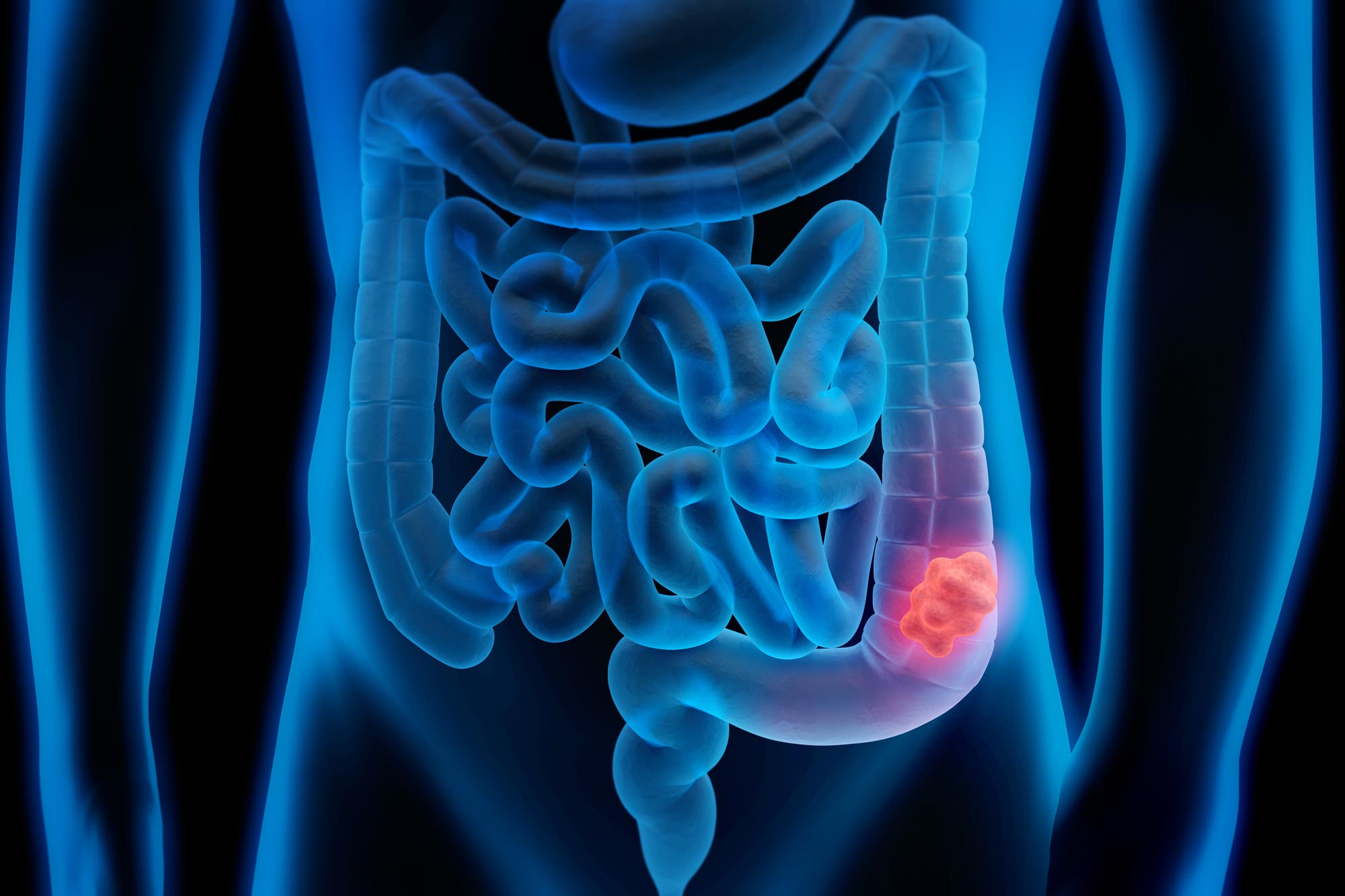Colon Cancer
Colon cancer, also known as colorectal cancer, is a type of cancer that begins in the colon or rectum. It typically starts as small, benign clumps of cells called polyps, which can over time become cancerous.
Colorectal cancer, a leading cause of cancer-related deaths, affects the colon and rectum. Early detection and treatment are crucial for better outcomes. Dr. Arvind Kumar is one of the best colorectal cancer surgeons in Delhi, offering expert care and advanced surgical techniques to enhance patient recovery.
Signs and Symptoms Of Colon Cancer
-
Persistent change in bowel habits, including diarrhea or constipation
-
Rectal bleeding or blood in your stool
-
Persistent abdominal discomfort, such as cramps, gas, or pain
-
A feeling that your bowel doesn’t empty completely
-
Weakness or fatigue
-
Unexplained weight loss
Types of Colon Cancer
Several types of cancer can occur in the colon or rectum, including:
-
Adenocarcinomas: These begin in the mucus-producing cells of the colon or rectum and are the most common type of colon cancer.
-
Gastrointestinal stromal tumors: These are a type of soft tissue sarcoma that can be found anywhere in the digestive tract, but rarely in the colon.
-
Lymphomas: These start in the immune cells and can occur in the colon.
Period of Consulting a Doctor
If you experience persistent symptoms or have a family history of colon cancer, you should consult a doctor for screening tests.
Causes
While the exact cause of colon cancer is unknown, factors such as age, diet, family history, and inherited conditions like Lynch syndrome can increase the risk.
Risk Factors Involved in Colon Cancer
-
Older age: Most cases are diagnosed in people older than 50.
-
Inflammatory bowel disease: Chronic conditions such as Crohn's disease and ulcerative colitis can increase risk.
-
Inherited syndromes: Genetic predispositions, such as familial adenomatous polyposis (FAP), can significantly raise the likelihood of colon cancer.
-
Family history: Having relatives with colon cancer may increase your risk.
Colon Cancer Diagnosis
To diagnose colon cancer, the following methods may be used:
-
Colonoscopy: A procedure that allows the doctor to examine the entire colon and rectum using a long, flexible tube with a camera at the end.
-
Biopsy: Tissue samples can be taken during a colonoscopy for laboratory analysis to determine if they are cancerous.
-
Imaging tests: CT scans, MRI, and PET scans can help determine the cancer’s stage and if it has spread.
Stages of Colon Cancer
The stages of colon cancer range from 0 to 4, indicating the extent of cancer spread:
Stage 0: Cancer is confined to the inner lining of the colon.
Stage 1: Cancer has grown into the muscle layer of the colon wall.
Stage 2: Cancer has spread beyond the muscle layer but not to nearby lymph nodes.
Stage 3: Cancer has spread to nearby lymph nodes.
Stage 4: Cancer has spread to distant organs, such as the liver or lungs.
Treatment Of Colon Cancer
Surgical Intervention
Depending on the cancer stage, surgery may be necessary. Surgical options include:
-
Polypectomy: Removal of polyps during a colonoscopy, typically for early-stage cancers.
-
Colectomy: Removal of the cancerous part of the colon, along with nearby lymph nodes.
-
Endoscopic mucosal resection: Removal of larger polyps and part of the colon lining.
Chemotherapy
-
Used to kill cancer cells and shrink tumors, chemotherapy may be used before or after surgery.
Radiation Therapy
-
Radiation therapy uses high-energy rays to target and destroy cancer cells, often used in combination with chemotherapy.
Targeted Therapy
-
Targeted therapy drugs specifically attack cancer cells with certain mutations, sparing normal cells.
Colorectal Cancer Doctor In Rajinder Nagar,
Rajendra Place,
Karol Bagh,
Patel Nagar,
Kirti Nagar,
Moti Nagar,
Jhandewalan,
Shadipur,
Shastri Nagar,
Paharganj.
for more details please contact us at +919818826423.
-
Colorectal Cancer Doctor in Rajinder Nagar
-
Colorectal Cancer Doctor in Rajendra Place
-
Colorectal Cancer Doctor in Karol Bagh
-
Colorectal Cancer Doctor in Patel Nagar
-
Colorectal Cancer Doctor in Kirti Nagar
-
Colorectal Cancer Doctor in Moti Nagar
-
Colorectal Cancer Doctor in Jhandewalan
-
Colorectal Cancer Doctor in Shadipur
-
Colorectal Cancer Doctor in Shastri Nagar
-
Colorectal Cancer Doctor in Paharganj
